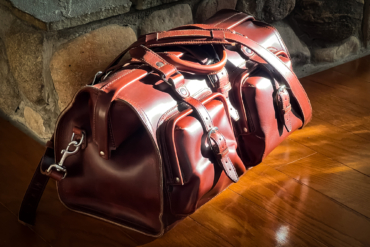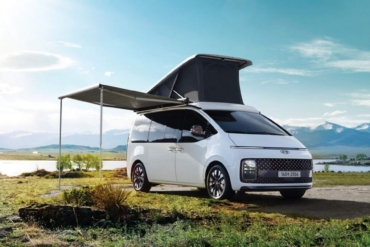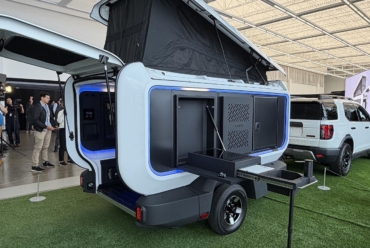Marc and Julie Bennett literally wrote the book on living the RV life. They’re pretty good at it now. But we wanted to know how they first transitioned to an exciting and unpredictable life.
Living out of an RV or camper sounds like the ultimate lifestyle for the outdoor enthusiast. But while van life and its offshoots are on the rise, taking the leap can come with some shocking realities. And even more surprises arrive when you do it with two.
With 50 states and several years under their belt, the Bennetts have adjusted to a roving life. But we asked them to revisit the transition time — getting over the initial hump.
They both struggled with different things. Julie missed her friends in Colorado.
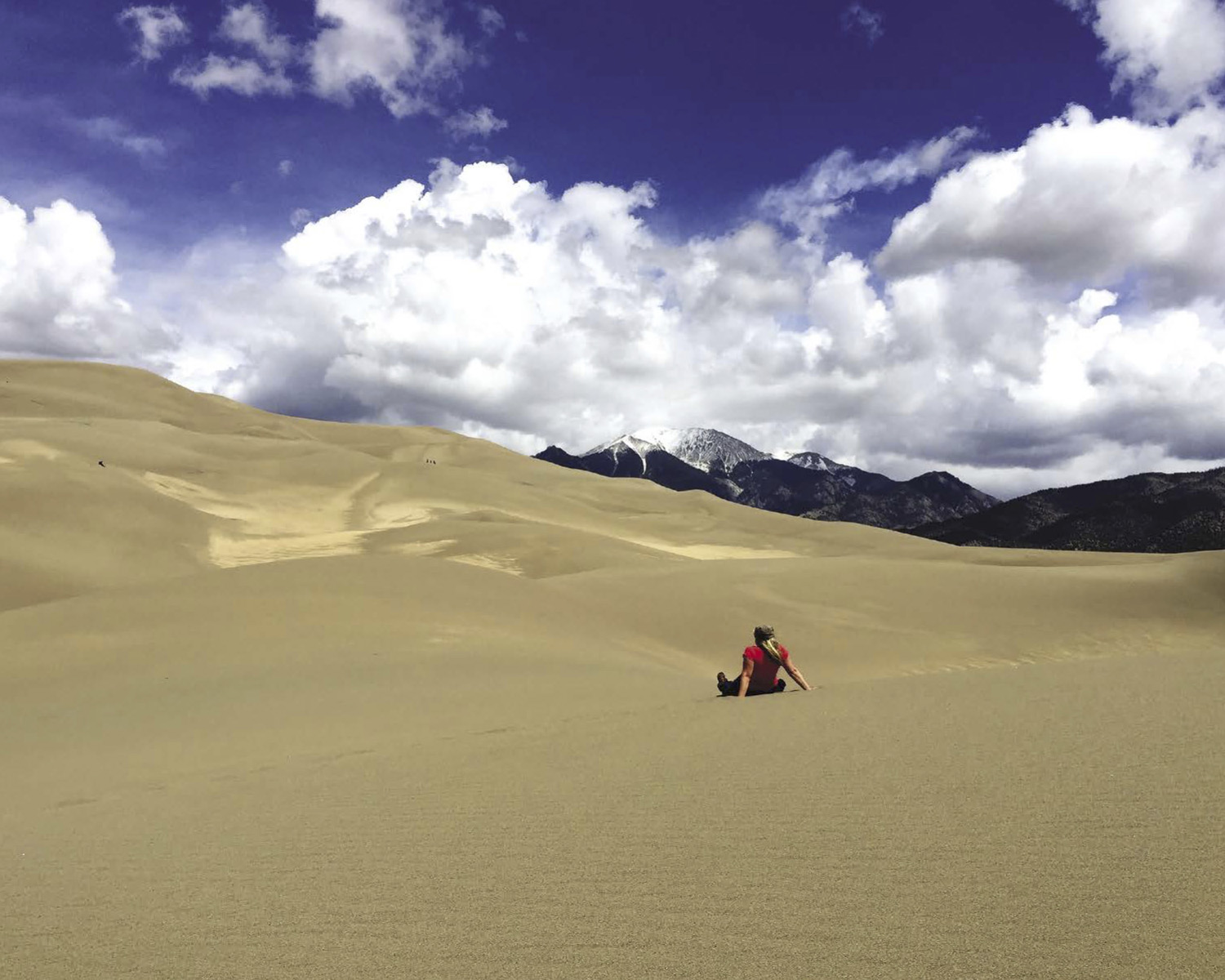
“As an extrovert, I felt a bit lost in the first few months,” she said. “I wasn’t working and had just started blogging and YouTubing, so it felt like I was talking to an empty room.”
Marc had a hard time when he eventually traded his full-time remote job (and regular salary) for self-employment. “The structure and consistency of my job brought structure to our personal lives and working hours,” he said.
“Now that we are self-employed and working together, the lines between work and play have become blurred. It can be hard to distinguish when you are working and when you are not, which leads to feeling like you are working all the time.”
Tips for Transitioning to Life on the Road
Dealing With Downsizing
Start selling, donating, and tossing stuff about six months before you dig up roots.
“Living in a smaller space forces you to think really deliberately about what you want and need,” Julie said.
“But I can honestly say there is nothing that I miss from my old life, except perhaps our bathtub (occasionally). I probably wear the same handful of outfits most days, as most of us do.”
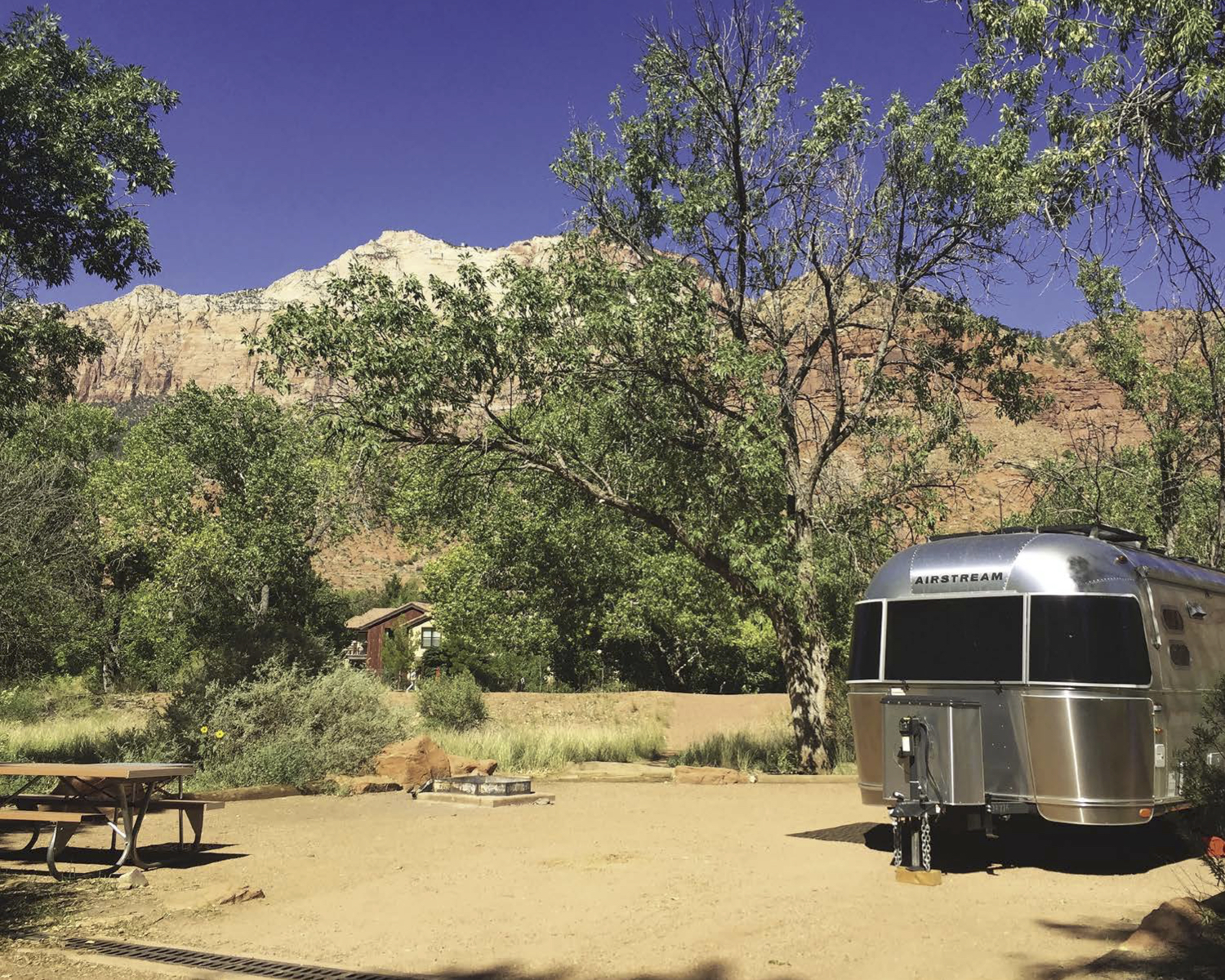
Before hitting the road, take a look around your house and garage and think about what you use every day, advised Marc. He liked his bikes, motorcycles, car, and snowboard.
“It’s probably a lot less than you think,” he said. “Sell all the things you don’t use often on Craiglist, eBay, Facebook Marketplace, to friends. You may be surprised how much money you can make to help fund your travels.”
Living in Tight Quarters
Marc called the physical squeeze a relationship “amplifier.”
“If your relationship is solid, the shared experiences can bring you closer. If your relationship is challenged, things will come to a head much quicker,” he said. “But that also forces you to communicate better.”
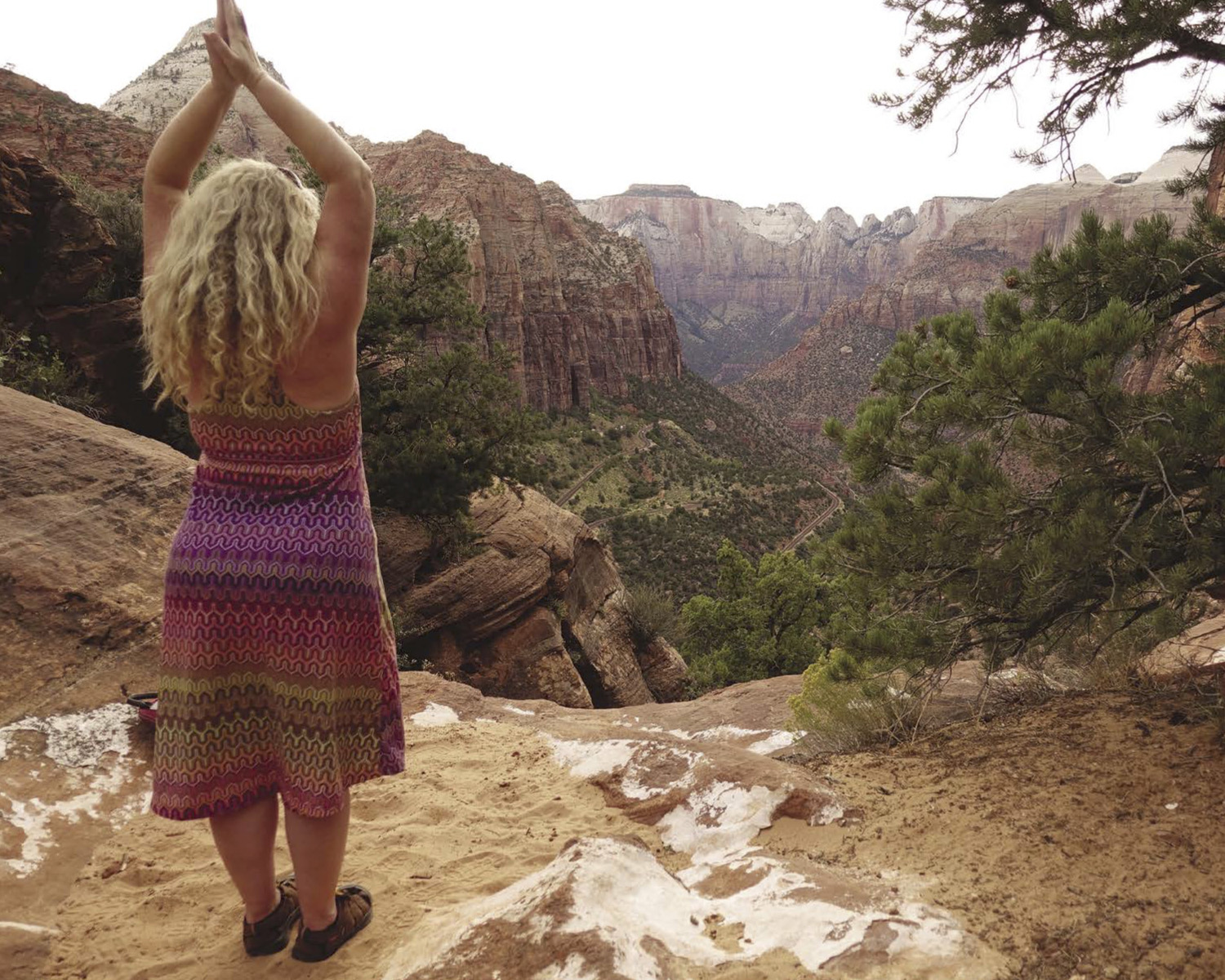
Making time for your own personal health and well-being is also key to staying sane.
“I’m an introvert who needs a lot of downtime and physical exertion to decompress,” he said. He adventures on his bike for a couple hours each day.
Julie recommended taking responsibility for your own social needs as well.
“If you’re an extrovert like me, you may need time around others to recharge. Catching up with friends or family on FaceTime calls is an easy way to do that,” she said.
Bringing the Dog
The Bennetts actually went for the full RV so their dog, Coda, could come along. They’ve met people who travel with cats, parrots, owls, a pig, goat, and a bearded dragon.
“Keep in mind that some kinds of pets — or even certain breeds of dogs — may not be allowed in some places like RV parks or campgrounds, which have their own rules,” Marc said.
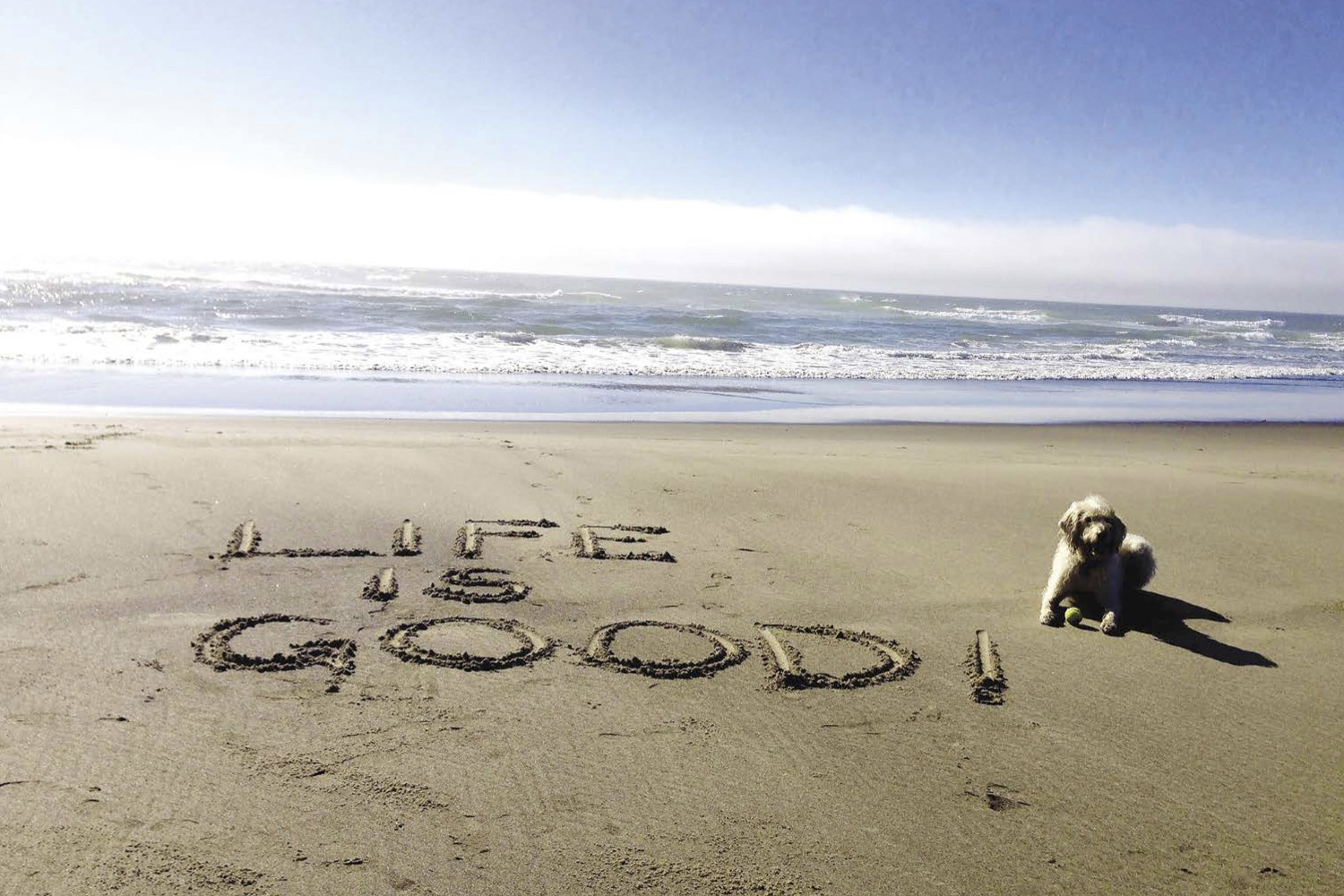
So do your homework. Even national parks can be somewhat limiting when it comes to taking your pets on hiking trails.
“When you’re traveling, you’re exposing them to different environments,” Julie said. That can mean new sicknesses, so it’s important to be prepared. Julie recommended looking for a national vet chain to keep up with your pet’s health and vaccinations on the road.
Finding a Pace
“If you are adopting RVing as a new lifestyle, you need to remember it is just that. It’s not a vacation,” Marc said. “You likely still need to work, pay bills, run errands, do chores, buy groceries, and other mundane stuff.”
Also, ask yourself a few honest questions first: Are you more of a glamper or a camper? Do you prefer campgrounds or boondocking out in a national forest? Do you like to move every few days, or spend a couple weeks or more in an area?
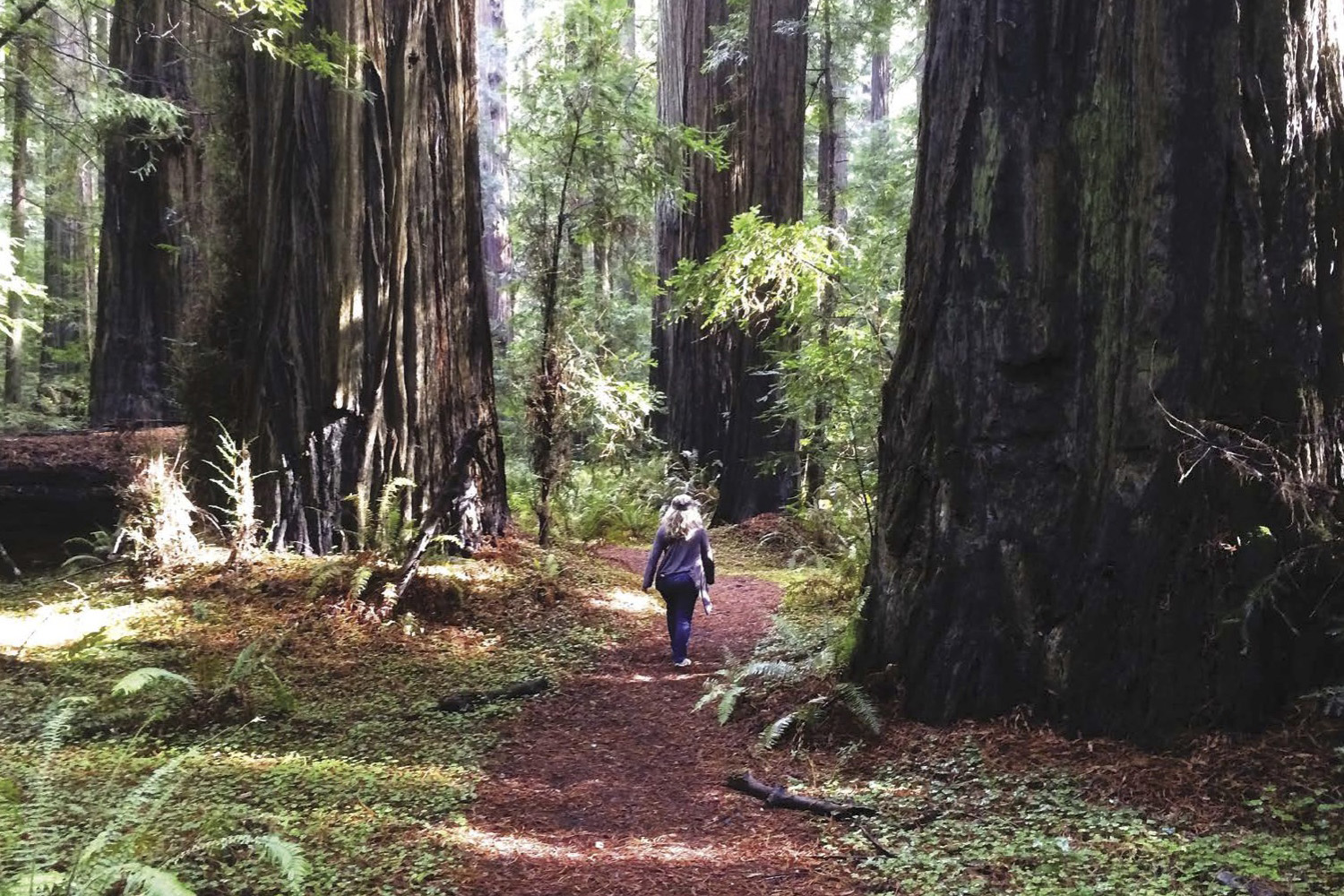
Both agreed slowing down has its benefits. Staying local longer allows you to uncover hidden gems, Julie said. It also saves on gas and camping costs and allows you to focus on work projects.
“It can be tempting to travel far and fast, trying to see as much as you can in your first few months on the road. But be aware that burnout is common among new RVers,” Marc said.
“It’s not a race.”
Is the RV Life Worth It?
Both say yes. Julie has found fulfillment in sharing tips to make RV life easier on others who want to try it. Marc has relished the freedom. It outweighs any challenges, he said.
“We’ve been able to see and do all this while are still young and healthy enough to get out there and bike, kayak, hike, climb, and swim it,” he said.
“Tomorrow is promised to no one, so we’re grabbing life by the horns today.”
The couple shares more tips in the recently released “Living the RV Life.”


